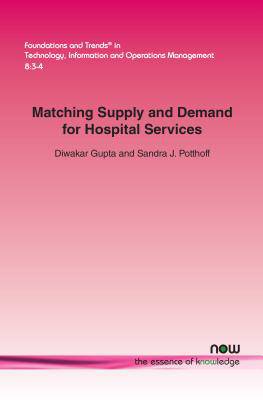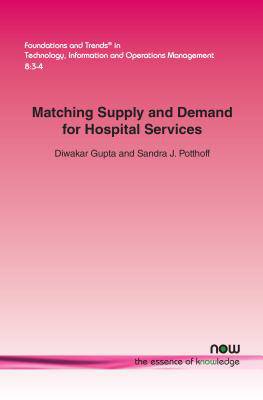
- Retrait gratuit dans votre magasin Club
- 7.000.000 titres dans notre catalogue
- Payer en toute sécurité
- Toujours un magasin près de chez vous
- Retrait gratuit dans votre magasin Club
- 7.000.0000 titres dans notre catalogue
- Payer en toute sécurité
- Toujours un magasin près de chez vous
96,45 €
+ 192 points
Description
Focuses on the three main types of services that hospitals provide: surgical services, emergency services, and inpatient services. In doing so, the authors expose the interconnectedness of these services and the challenges that arise due to the cascading effects of mismatches in any one area on all other hospital operations.
Spécifications
Parties prenantes
- Auteur(s) :
- Editeur:
Contenu
- Nombre de pages :
- 158
- Collection :
Caractéristiques
- EAN:
- 9781680831085
- Date de parution :
- 06-05-16
- Format:
- Livre broché
- Dimensions :
- 234 mm x 158 mm
- Poids :
- 258 g

Les avis
Nous publions uniquement les avis qui respectent les conditions requises. Consultez nos conditions pour les avis.






